Feudal Fiat Warfare & Power Struggles
How the Milei government will weather the storm of resistance to change in Argentina
Welcome Avatar! After the Omnibus Law was withdrawn due to fierce resistance with regards to certain public fund allocations, Milei started a new war with the provincial governors. Surely there haven’t been many austerity measures throughout history as brutal (and effective) as the ones implemented by Milei, and it’s definitely time to grab some popcorn to see how this will all play out.
Autist note: this article also appeared on BowTiedBull here:
First 2 Months: Chainsaw Recap
On day 1 of the Milei government, one of the first things that was pushed through was an Executive Order which deregulated many sectors of the economy. This decree is valid and only the labor section and a few others are being contended in the courts.
For a complete overview of what this decree entails, you can read this article, which also sums up the Omnibus Law, which was the second biggest proposal for changing the economic framework that has held Argentina in its grip for the last 80+ years.
The Omnibus Law is a 350+ page law package that includes a complete shift from the trajectory Argentina was on for so many decades. The idea was to run this through Congress and eventually the Senate so it could be cemented into law.
In order to make this a reality, Milei called for extraordinary sessions during January (traditionally a summer recess month), much to the chagrin of most of the opposition deputies who were deprived of chilling at the beach at the start of the year.
The first weeks of deliberation ended in a positive vote to treat each of the sections with corresponding articles proposed in the Omnibus Law. During the session in Congress many politicians and activists protested, like this deputy who decided to bury himself out of protest against Milei’s initiatives:
Soon after voting on the first few articles, the political caste showed it’s true colors: the most important negative vote was for the trust funds that provinces can manage without national government oversight (about $8-10 billion USD/year).
It was clear that provincial deputies received instructions from their governors to make sure these funds stayed as opaque as possible, much less giving the national government more of a say of what to destine those funds to.
Shortly after this debacle, Milei decided to kill the Omnibus Law:
"I lifted the Omnibus Law, because I achieved my goal: now the people know who voted against the change, in favor of inside jobs.
They are a bunch of criminals, in 2025 they are not going to renew their seats. People despise them, feel disgust for politicians, and they are right."
— Javier Milei after he pulled the plug on the Omnibus Law package
This was a smart move, since sending it back to an evaluation committee to have the same thing happen almost certainly would only lose precious time, and by now it is clear that the majority of ingrained politicians leeching off their little kiosks within the public sector would try to block any real change no matter what.
The Start of the Provincial Mud-fight
If the Omnibus Law was approved, Argentina would be ranked between Italy and Croatia in the ranking of Economic Freedom. In their desire to maintain their privileges and jobs, politicians preferred that the country continues to rank between the Congo and Libya.
It suddenly became very obvious whose interest they protect: mainly their own.
Of course, these will hardly ever vote against their own interest, so initially it was a refreshing change to see that most of these provinces still voted for Milei to become president.
One of the outliers was Santiago del Estero, where close to 70% voted for Massa in the runoff, a percentage that coincides almost 1:1 with its 61% public employment, lol.
The governors believed they had much more bargaining power than they did, but the Milei government was already prepared to go to zero deficit even without the Omnibus Law.
The Milei government had already warned that if the voting on the Omnibus Law would go south, it would reach zero deficit by other means, and that was exactly the next step after nuking the whole initiative: Milei cut the discretionary funding to provinces by -98%.
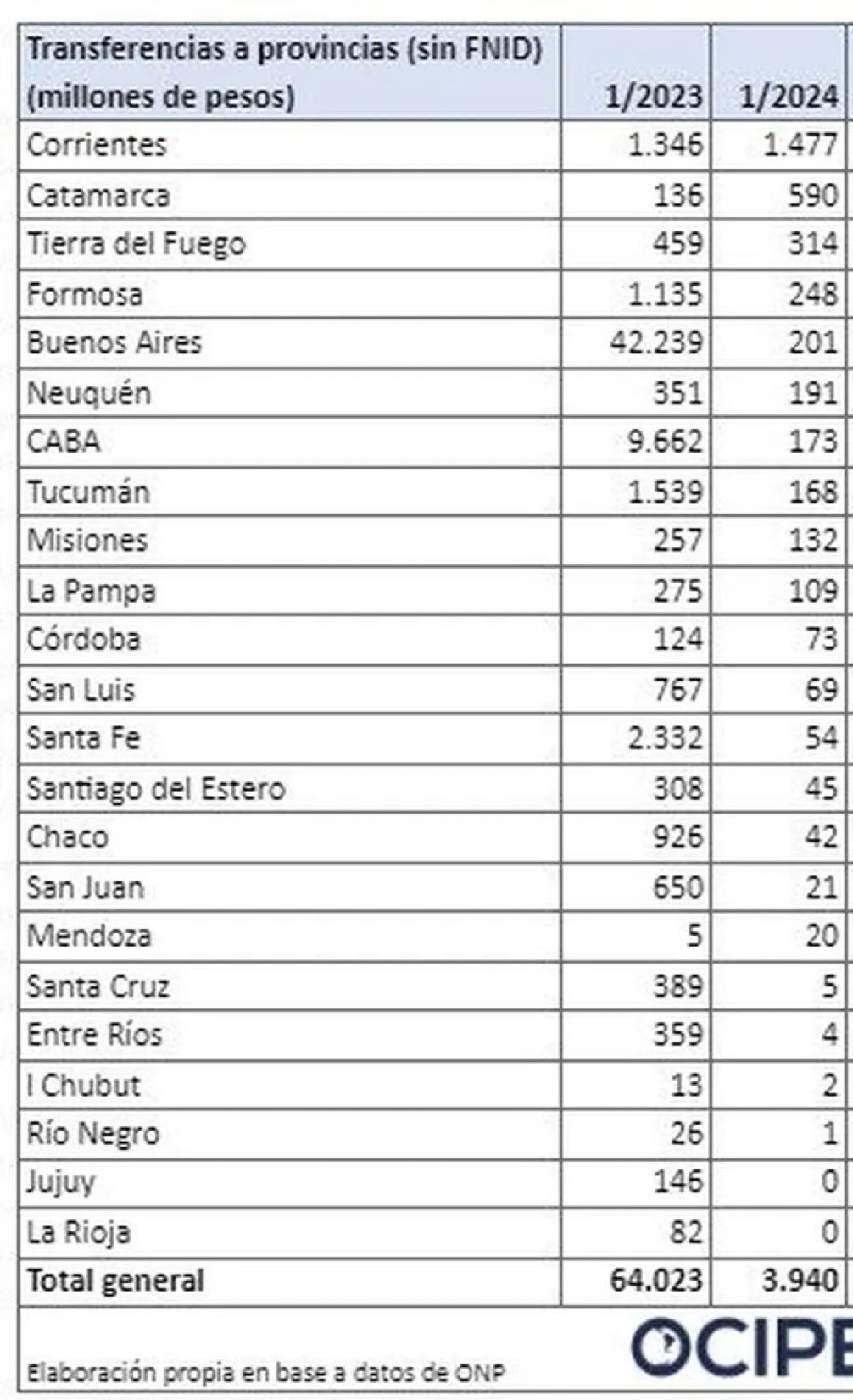
Yes, read that again:
“We have fired 50,000 public employees, did not renew 10,000 contracts, we eliminated 200,000 irregular social programs, we reduced discretionary transfers to the provinces by -98% and we eliminated public works, which is a source of gigantic corruption.”
— Javier Milei in a recent interview
Some of these governors rule their provinces like true feudal lords, and the majority of their subjects are on the public sector payroll.
One of these feudal lords is Ricardo Quintela, the governor of La Rioja who said that if Milei won the election he would resign, but never did. As you can see in the top 9 above, La Rioja is one of the provinces with close to 70% employed in the public sector.
Now that the transfers from the national government have practically come to a complete halt, Quintela had two options: he could either cut spending, or…. issue provincial bonds and pay public sector salaries with that quasi-currency.
Guess what he chose? You guessed right:
The La Rioja feudal lord pretends to pay 30% of the salary of 100,000 public employees in the province with these provincial bonds.
In Argentina provinces can issue their own currencies, and as you can see this makes the country into the ultimate playground for fiat experiments in the form of provincial (and national) shitcoins: coinmarketcap in real life.
This quasi-currency toilet paper will automatically lose value because there is no demand, and it will probably not be salable outside of provincial borders, except for currency collectors like this Patagonian rabbit who would like to add this shitcoin to their collection.
Other governors like Kicillof in Buenos Aires have also expressed that issuing a provincial currency could be an option to fund deficits. We all know how this ends.
How much can Milei actually change?
Speed is of the essence in anything that the Milei government attempts in terms of change. This is one of the main factors that the Macri administration (2015-2019) got wrong: they applied gradualism. In the long run, this didn’t change anything, except that they had to take on more debt to sustain an even bigger elephantastic public sector.
Milei is doing the opposite, applying shock therapy and deregulating left and right, and if these changes will stick is something he will deal with later. So far, this has worked out favorably.
Autist note: if you want to learn more about the power dynamics (in the Senate and in Congress) and the initial deficit mayhem Milei has to deal with, this article provides a complete overview:
The opposition expected the Milei government to be ill-prepared for the task of ruling the country, and counted on him to succumb to what has been an evergreen in Argentine politics: do the exact opposite of what you proposed during the campaign. They also questioned his ability to govern, since his political infrastructure is close to non-existent compared to the traditional parties.
Needless to say that the opposition that reigned over Argentina without much pushback throughout this century —even Macri aligned more or less with the Peronists, and his party voted in favor of many anti-market legislation proposed by the latter,— wasn’t prepared to receive this avalanche of policy changes, deregulations and law proposals by Milei.
Even after they tried to shoot down the Omnibus Law package, Milei showed that he could apply the same measures through Executive Orders.
Towards the end of the year, the government will file a comprehensive tax reform — according to Argentina’s Constitution, most taxes cannot be changed by decree.
Dollarization / Closing BCRA
This week Milei is meeting with the IMF in order to see if the organization would be open to lend another $15 billion so that exchange rates can be unified (right now there is still a 30% spread between the official rate and the blue dollar rate), and to accelerate dollarization.
This would also speed up the closing of the central bank (BCRA), which Milei had originally planned for year 2-3 of his presidency. Those plans are very much still on the table, and the main goal is taking away the cause of so many decades of inflationary misery away for good.
Autist note: Milei’s “dollarization” plan is not to impose dollarization by legal tender, but freedom of currency choice and killing the peso. In practice that comes down to a dollarization for Argentina since that is the most used. But it also opens the door to Bitcoin in the future. After his initial decree, contracts between parties can now be signed in any currency, including Bitcoin.
January Surplus
Together with the Executive Order for deregulation and cutting transfers to provinces almost completely, another action the Milei government took was cutting public employees:
This, together with the other cuts, unwinding the peso hyperinflationary debt bomb left behind by the previous administration and slowing down the printer as much as possible, has already resulted in the first January surplus in 12 years.
It is the first financial surplus (monthly) since August 2012 and the first financial surplus in a month of January since 2011.
Argentina maintains a credit agreement for 44 billion dollars with the IMF and in that framework zero fiscal deficit is the main goal of Milei's government for 2024.
Privatizations of public companies are also on the horizon, and in the case of companies like YPF 0.00%↑, that will probably not be privatized, leadership and direction was changed, which immediately is unearthing deficit holes and corruption left and right.
Don’t spend more than you earn, it seems easy, but 99% of governments worldwide have a very hard time with that concept. So far, things are looking very positive for Argentina on that front.
Social Tensions
The biggest concern at this point lies not so much with the political caste, but whether the social context, with very high inflation and rock-bottom salaries, will allow Milei to continue down this path.
If salary purchasing power is not restored in the coming weeks, the government could have serious social problems (read: more serious riots and revolts).
Even though MoM inflation is decreasing (20% in January vs 25% in December), Argentina is still in the 250-300% YoY range, and ripping the price control bandaids off in December and January has doubled many items, even in dollar terms.
This is not sustainable for the majority of the population unless there is some upwards adjustment in salaries (which, in the short term, will probably cause more inflation because employers will increase the pricing for their products and services accordingly).
We’ll see how it all turns out, but so far it is far from boring.
See you in the Jungle, anon!

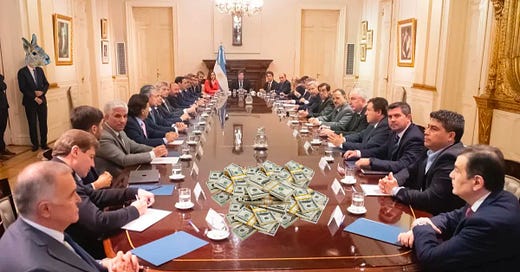








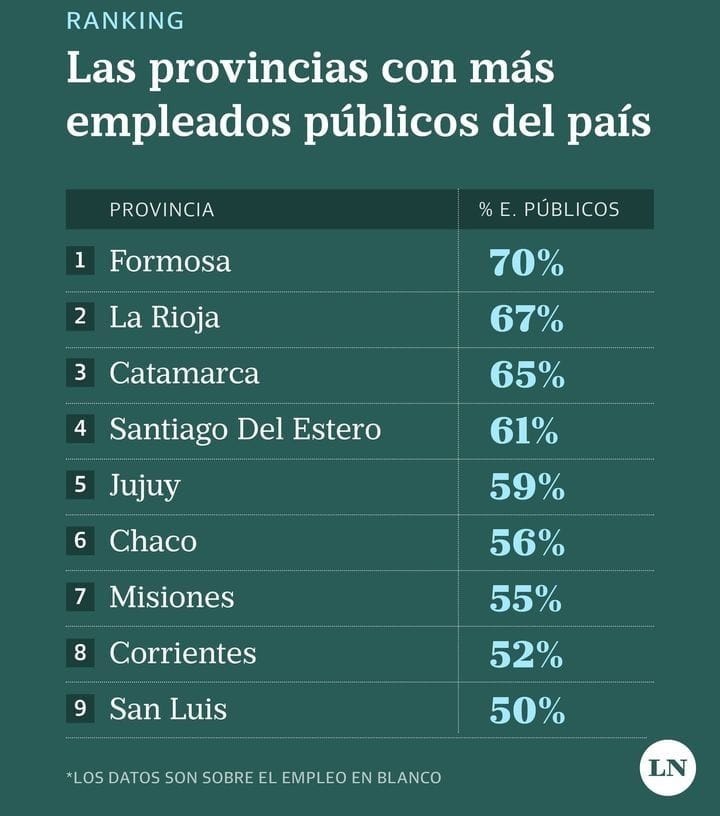

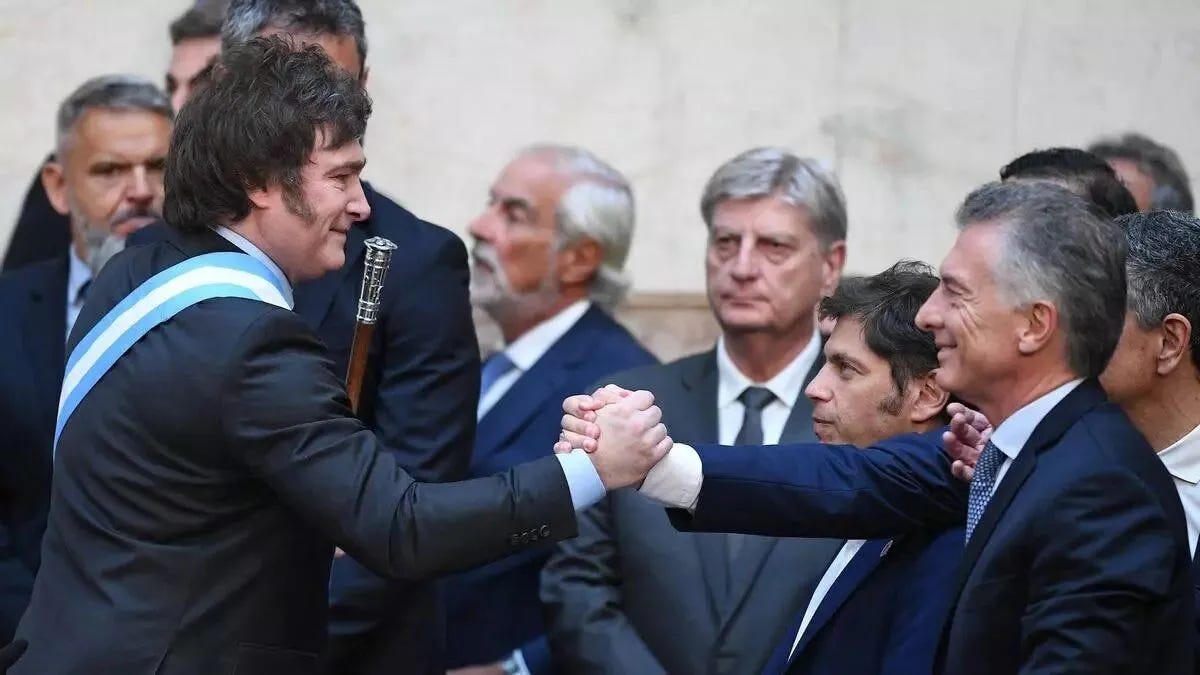


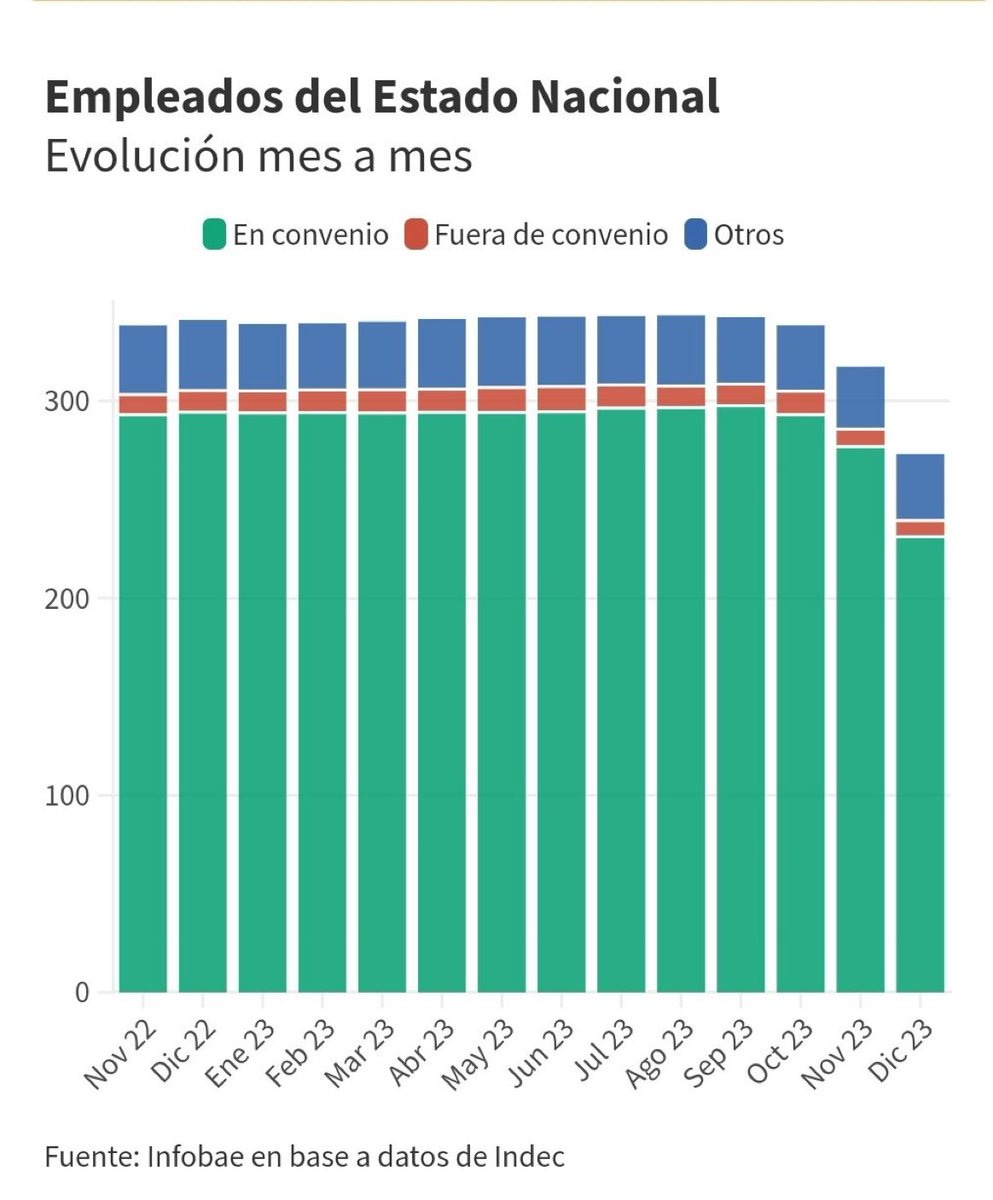

Interesting times ahead and, living in Argentina, we feel all of it.
Very interesting, thanks for sharing. When are the next legislative elections ? Do you think Milei’s party has a chance to win the majority of the seats ?